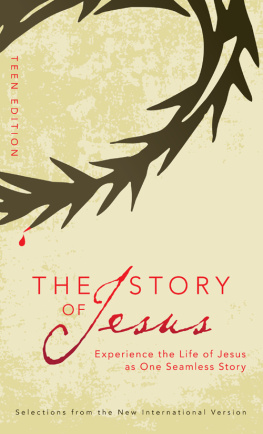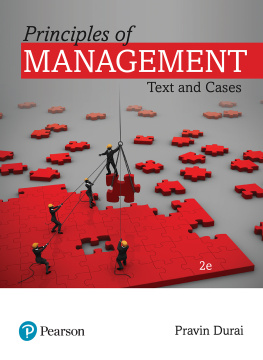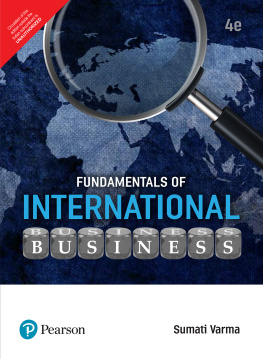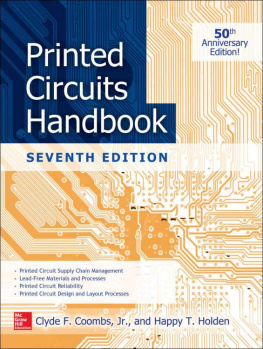Francois Bougon - Inside The Mind Of Xi Jinping
Here you can read online Francois Bougon - Inside The Mind Of Xi Jinping full text of the book (entire story) in english for free. Download pdf and epub, get meaning, cover and reviews about this ebook. year: 2018, publisher: Westland, genre: Science. Description of the work, (preface) as well as reviews are available. Best literature library LitArk.com created for fans of good reading and offers a wide selection of genres:
Romance novel
Science fiction
Adventure
Detective
Science
History
Home and family
Prose
Art
Politics
Computer
Non-fiction
Religion
Business
Children
Humor
Choose a favorite category and find really read worthwhile books. Enjoy immersion in the world of imagination, feel the emotions of the characters or learn something new for yourself, make an fascinating discovery.

- Book:Inside The Mind Of Xi Jinping
- Author:
- Publisher:Westland
- Genre:
- Year:2018
- Rating:5 / 5
- Favourites:Add to favourites
- Your mark:
- 100
- 1
- 2
- 3
- 4
- 5
Inside The Mind Of Xi Jinping: summary, description and annotation
We offer to read an annotation, description, summary or preface (depends on what the author of the book "Inside The Mind Of Xi Jinping" wrote himself). If you haven't found the necessary information about the book — write in the comments, we will try to find it.
Inside The Mind Of Xi Jinping — read online for free the complete book (whole text) full work
Below is the text of the book, divided by pages. System saving the place of the last page read, allows you to conveniently read the book "Inside The Mind Of Xi Jinping" online for free, without having to search again every time where you left off. Put a bookmark, and you can go to the page where you finished reading at any time.
Font size:
Interval:
Bookmark:



First published in the United Kingdom in 2018 by C. Hurst & Co. (Publishers) Ltd.
First published in India by Context, an imprint of Westland Publications Private Limited in 2018
61, 2nd Floor, Silverline Building, Alapakkam Main Road, Maduravoyal, Chennai 600095
Westland, the Westland logo, Context and the Context logo are the trademarks of Westland Publications Private Limited, or its affiliates.
Copyright Francois Bougon, 2018
ISBN: 9789387578760
The views and opinions expressed in this work are the authors own and the facts are as reported by him, and the publisher is in no way liable for the same.
All rights reserved
No part of this book may be reproduced, or stored in a retrieval system, or transmitted in any form or by any means, electronic, mechanical, photocopying, recording, or otherwise, without express written permission of the publisher.
To Julie
CONTENTS
On 17 January 2017, a communist leader found himself applauded by the global capitalist elite assembled at an exclusive ski resort of Davos. As the first Chinese leader to take part in the World Economic Forum, Xi Jinping made an impact and won approval. Before politicians and businessmen rattled by Brexit in the United Kingdom, and in the presence of the populist US president-elect Donald Trump, Xi championed globalisation and offered to heal their emotional ills:
As a line in an old Chinese poem goes, Honey melons hang on bitter vines; sweet dates grow on thistles and thorns. In a philosophical sense, nothing is perfect in the world. One would fail to see the full picture if one claimed something to be perfect because of its merits, or if something were viewed as useless just because of its defects. It is true that economic globalization has created new problems, but this is no justification for writing off economic globalization completely.
Three days before Trumps investiture as president, Xi defended the Davos participants perceived and cherished world order, and implicitly criticised the solutions put forward by Trump, be it the closure of borders or restrictions on free trade. We should commit ourselves to growing an open global economy to share opportunities and interests through opening-up, and achieve win-win outcomes. One should not just retreat to the harbour when encountering a storm, for this will never get us to the other side of the ocean, he said, adding a reference to another Chinese saying: people with petty shrewdness attend to trivial matters, while people with vision attend to the governance of institutions.
Quite a PR victory for the man who sees himself as the advocate not only of world trade and international cooperation, but also of the Paris climate agreements. But who is this man, nominated as the general secretary of the Party in 2012, then reappointed for a second term five years later at the Nineteenth Congress? Who is this leader who has consolidated his power to such a degree as to have his name inscribed in the Chinese Communist Party constitution, a privilege that only Mao Zedong, founder of the Party, has previously enjoyed in his lifetime?
Without question, it can be said that Xi Jinping (pronounced sh-yee gin ping) is the product of a system. It is a system that was born at the end of the 1920s amidst the guerrillas of Chinas south-eastern mountains, who would go on to defeat Chang Kai-sheks Nationalists after the Long March and the Civil War. The country traditionally divides its leaders into generations. The Great Helmsman Mao Zedong, the revolutionary leader and founder of the Peoples Republic of China in 1949, belongs to the first of these generations. From 1943 to 1976, he championed a permanent revolution, putting class struggle at the heart of his policies, mobilising the country in relentless political campaigns, and leading it dangerously close to collapse and chaos during the Cultural Revolution. Deng Xiaoping, the Little Helmsman (197889), presided over the second generation, to whom fell the task of fixing Maos deadly follies by opening up the country to capitalism and laying the foundations of its economic renewal.
Deng placed Jiang Zemin at the head of the Party (1989 2002) following an internal crisis brought about by the Tiananmen democratic movement, which ended in bloody repression and the sidelining of proponents of more daring political reforms. The fourth generation was personified by a leader devoid of charisma, the engineer Hu Jintao (200212). In contrast to his predecessor, Xi Jinping, representing the fifth generation, stands outthere is undeniably more to him. He possessed precisely the right amount of charisma and panache required to move effortlessly up the Partys ranks, yet without coming across as a threat to potential rivals. This perfect match with the system and its era has been particularly remarkable.
All the more so since Xi is, after Deng, the Chinese leader who has accumulated the most power, first as leader of the Party from 2012 and then as president from 2013. In this position, he has established his authority by following the tried and tested tactic of his predecessors: making sure not to commit any blunders and pampering the eldersgrandees such as Jiang Zemin, now in his Nineties. To gain control of the Partys immense bureaucratic machine and circumvent potential opposition, Xi swiftly set up several leading small groups that reported directly to him. In November 2012, he established a commission responsible for Taiwanese and Foreign Affairs, then, a year a later, one overseeing economic reforms. In January 2014, a national security commission was created; a month later came a cybersecurity and computerisation commission, followed by another on national defence and military reform; and, in June that year, a commission for economic and financial affairs. This strategy of encirclement has proven effective. Step by step, these special commissions have enabled Xi to impose his ideas on the Partys traditional organs, such as its Standing Committee, where he has to deal with representatives of different factions, born of political disagreement or personal rivalries. All of which has led the Australian sinologist Geremie R. Barm to dub him Chinas CEO or Chairman of Everything.
Xi Jinping is also a hong er dai , literally a Second-Generation Red, the son of a revolutionary pioneer. It is his turn to make history, and hereditary legitimacy is not without significance for a leader who intends to fight on the ideological front. He is now called upon to preside over the fate of the worlds second largest economy, at the precise moment when the regime needs to find a new model for development. Mao promoted class strugglea revolution is not a dinner partyand Deng and his successors, the market, coining the now celebrated oxymoron Socialist Market Economy. At the Nineteenth Party Congress in November 2017, Xi announced the beginning of a New Era for China as a great power, pursuing its path to becoming the worlds largest economy and intent on reclaiming the centre stage.
When he first took office, time was of the essence. The Party was concerned about its survival. How could we tell, one might ask, when it comes to a regime as impenetrable as the Vatican? By means of selected readings. Wang Qishan, who spearheads the fight against corruption within the Party, distributed far and wide copies of Alexis de Tocquevilles The Old Regime and the Revolution . Once published, the translation of this 1856 text was an overnight success. Yet what precisely is its argument? In essence, that the French monarchy was swept away by the Revolution even though the country was prosperous, and reforms underway to tackle corruption and inequality. It has all the trappings of a cautionary tale for todays China.
Next pageFont size:
Interval:
Bookmark:
Similar books «Inside The Mind Of Xi Jinping»
Look at similar books to Inside The Mind Of Xi Jinping. We have selected literature similar in name and meaning in the hope of providing readers with more options to find new, interesting, not yet read works.
Discussion, reviews of the book Inside The Mind Of Xi Jinping and just readers' own opinions. Leave your comments, write what you think about the work, its meaning or the main characters. Specify what exactly you liked and what you didn't like, and why you think so.







